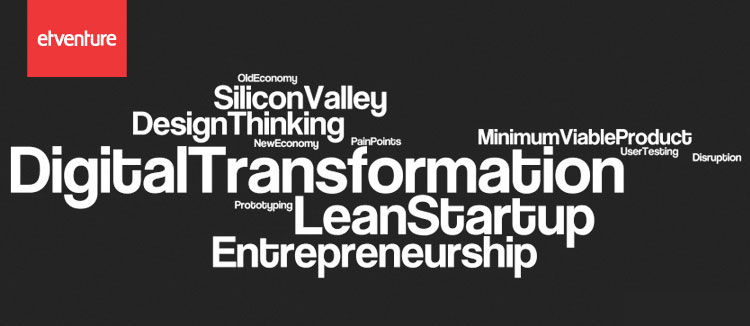Digitization and digital transformation – an overview of the most important topics from the month of November
02. December 2016
Once again, we look back and examine the latest exciting digitization-related news. This month provided even more clarity about the way that digital players are moving in and occupying interfaces for interacting with clients. In this vein, we will focus on the examples of German public authorities and the hotel sector. We will also address the issue of how much politics should intervene to protect business models that are being threatened by startups. This blog will also take a look at unconditional basic income and the way that digitization is perceived at companies.
Why do I still have to go to the authority’s offices? (Süddeutsche Zeitung)
All German residents will doubtless have asked themselves the same question, especially if they wanted to register a place of residence or apply for a passport. Although it has long been possible to apply for a German bank account online, German public authorities are trailing by a significant distance when it comes to digitization. According to a survey by the Hertie School of Governance, the heads of these public authorities also see digitization as the greatest challenge of the coming years. In the area of e-government, Germany had actually hoped to be the front runner in Europe by 2015. Yet according to the European Commission, out of all the EU countries, Germany is currently only ranked 18th. The forerunner is Estonia. “While Germans are spending time at the vehicle registration office (‘your queue number is 178’), Estonians are doing it all from home – signing contracts, submitting tax returns, founding companies, loading bus tickets onto their ID cards, viewing their medical records and voting. In 2015, one in five votes were cast digitally.”
So what’s going wrong in Germany? The main problems are the fact that public authorities know very little about e-government, the lack of overarching coordination, and the insufficient budgets. Nevertheless, poor user-friendliness is possibly the most serious cause of the problems. Tim Angerer, who coordinates digital projects for Hamburg’s municipality, agrees: “What will be decisive will be planning our services on the basis of citizen requirements.” Indeed, there has not been a total lack of initiatives on the part of the German government. Two projects have already been launched: De-Mail and the electronic ID card.
Nevertheless, although around half of internet users have one of the electronic ID cards, which were introduced six years ago, the article explains that “only 28 percent of [these users] have activated the online ID function. Four percent have the necessary card reader device.” Why? “Using the new German ID card online is about as simple as filling out a German tax return form. The prospective e-citizen ‘only’ needs to activate the online function, be in receipt of the six digit PIN, have a card-reading device lying around at home and install special software that creates a secure connection.” It’s no surprise that most of them prefer to accept the long waiting times at the relevant authority’s offices. Similarly, it is hardly surprising that startups are now occupying these interfaces between public authorities and citizens. They are offering what the authorities have as yet failed to offer. The Berlin-based startup Amtio promises to get you an appointment within five days, which includes help with filling out forms and a visit to the registration office. “Naturally there is a fee for this – letting others do the queueing costs €120.”
Sigmar Gabriel wants to protect hotels from Airbnb (Welt)
Counterintuitive German public authorities are not the only the targets for startups that aim to radically occupy the client-provider interface – the same is happening in the hotel and restaurant industries. Like Uber, Airbnb has managed to occupy the digital channel between traditional companies and their clients – across an entire sector. This has grave consequences for the core business of ‘old economy’ providers. Is it necessary to protect these sectors? Should political intervention be used if required? Either way, German Economy Minister Sigmar Gabriel is arguing in favor of this kind of protection. He wants to use government regulation to protect the hotel and hospitality industries from “unfair online competition.” The article summarizes Gabriel’s view: “Many companies in the ‘sharing economy’ are so successful because they dismiss matters of insurance and liability and they do not pay the lawful taxes on what they earn.” At the same time, he emphasizes that digital development should not be slowed down. Instead, he says, “it requires a framework.”
In the case of Airbnb, the proposal is to introduce a limit, so that private individuals can only let out their living space for a certain number of days. The article outlines further proposals: “Income from private letting activities should be taxed and local tourism taxes or levies should be paid. Digital intermediary services should also become more involved in tax regulation implementation.”
Consequences of digitization: Siemens boss describes unconditional basic income as “unavoidable” (t3n)
The impact of digitization on the working landscape was also a topic in our last monthly news review, which discussed the kinds of jobs that will remain in the future. At the SZ-Wirtschaftsgipfel economic summit, which took place in Berlin from November 17–19, Siemens boss Joe Kaeser spoke about what he saw as being the “unavoidable” consequence of these changes. He believes that, in the era of autonomous digital systems and robots, around “1.5 million traditional jobs will disappear in Germany by 2025.” In the long term, he says that “some employees will be left behind.” In his eyes, the solution is the unconditional basic income, which he says would safeguard the livelihoods of the population. This would mean tax reform and every citizen receiving financial support without any requirement of a contribution in return. Other business leaders such as Tesla boss Elon Musk and Götz Werner, the founder of German retail chain dm, have already spoken out in favor of basic income. The topic is also on the agenda in other countries. Finland has already attempted its first pilot project. There will undoubtedly be more and more discussions about unconditional basic income.
Bitkom: The digitization of the economy is well on track (heise online)
Germany’s digital association Bitkom has announced some good news: According to a study it conducted, more and more German companies are seeing digitization as a big opportunity for the future. At the beginning of the Hub Conference in Berlin, Thomas Dirks, President of Bitkom, said that the digitization of the German economy was “picking up speed.” Around 40% of the German companies want to increase investment in digital technologies before the end of the year so that they will be able to offer new products. “According to the survey, just under one fifth of companies want to invest in developing digital business models,” the article explains. Is that really a lot? Are the efforts of the German economy sufficient? We’re not so sure. In this vein, the article outlines the view held by Bitkom CEO Bernhard Rohleder that, although there is an increased awareness of the topic, “in many cases, it has still not been translated into any practical action.”
The article continues to explain Dirks’ view: “Dirks says that businesses can only make a success of digitization if they overcome divisions – between large and small companies, different sectors, between business and politics. He adds that it won’t be enough to simply recruit someone from the internet economy. If there were any doubts, an ex-Google employee wouldn’t have a clue how digital transformation works.” Dirks is cited in the article as saying, “We don’t need to copy Silicon Valley, we need to understand it.” He also emphasized the importance of persuading people about the importance of the opportunities associated with digitization.





* Required field